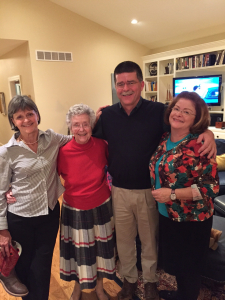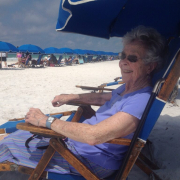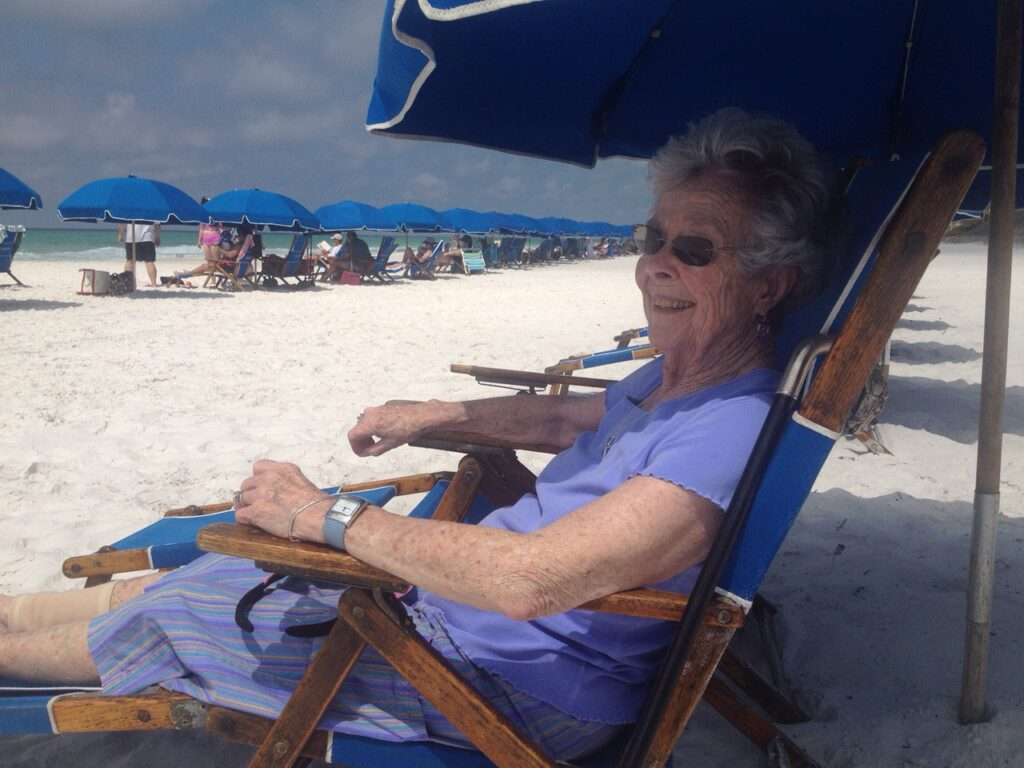
An age-old instinct was triggered the other day, when I was feeling pretty sorry for myself, felled by a nasty stomach virus and trapped at home, recovering but still weak and irritable.
I wanted my Mom.
A little old for that, aren’t you, you might say to a woman with grandchildren who is approaching a significant birthday, one of those landmark years that ends in zero. Who cares? If your Mom is good at doling out sympathy, why bother to outgrow reaching out for a healing dose?
Mom ranks with the best at dispensing heartfelt consolation to the sick or injured. (On some other matters, she leans more toward the help-thyself-and-get-over-it methodology, but that’s another story, another day.) Lucky for me, she’s as close as the phone, so I dialed her up, hoping for the desired helping of conversation.
A few months back, it seemed those days might be over. With no warning signs, Mom was suddenly taken by something that looked and felt like a stroke. Conversation became halting, confused, a struggle, and in a blink she went from taking daily strolls to being unable to rise from a chair unassisted.
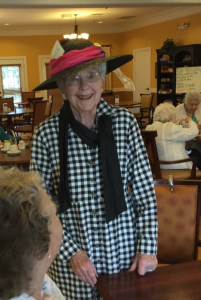
Immediately, painful decisions shadowed the horizon. Maybe a different facility was needed, with a higher level of care? And a smaller room, with more reduction of her beloved inherited belongings, another change, another set of caregivers to learn. From where we stood on the path–and certainly for her– the journey ahead dictated hard, hard steps. My attentive brother and sister, both in the same town with her, shifted into efficient action. They got her on the list for a good nursing home. There was a long round of doctor’s appointments, parallel to conferences with the staff at the assisted living facility that has become Mom’s home and community these last two years.
The thing about living with aging parents is the uncertainty. Those blessed with good genes and life choices may walk the aging path with few health-related diversions, but for so many, there are constant ups and downs that leave us, still the children at whatever age, unable to know what any given day may bring.
Against the odds, the days might bring a pleasant surprise. A little time passed, and we paused to reassess. Slowly and determinedly, Mom showed some improvement. Physical therapy renewed strength and motion. She brightened up in conversation and felt strong enough to tell my patient brother in no uncertain terms that she was simply not up to moving anywhere, period. A second episode occurred, but she recovered even more quickly. The inevitable, detailed physical workups revealed—nothing. Mysteriously (as modern medicine remains, more often that we think), the doctors told us what didn’t happen, but not what did. There was no stroke, no heart problem. Mom has changed greatly in recent years, that’s for sure, but for now, she is pretty much back to where she was before these frightening, inexplicable episodes.
So what does that mean for today, for the journey ahead?
It is hard to fully banish, in the back of the mind, a whispered undercurrent of unrelenting dread. Practically speaking, of course it can’t last forever. When my cell phone flashes my brother’s name at an unusual time of day for his calls, a small vise grips the heart. Is it The Call, the one I don’t want to answer?
Of course, the flip side of this thought process is simple. What could be more absurd than seeking to predict what cannot be predicted?
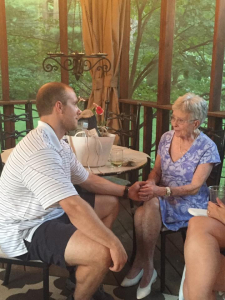
To release that anxiety and turn to living each day to the absolute utmost, I probably should study the example set by: my Mom. Along with the hoped-for sympathy for my embattled digestive system, a rather persistent state of misfortune she acknowledges I probably inherited, there was other news on the recent phone chat. There were updates on the summer garden, a visit by the great-grandchildren, and a satisfactory report on the interim pastor at church. A recent surprise engagement party for one of her granddaughters required dressing up and traveling two hours in the car, each way, with a late-night return home. True to form, she firmly refused to miss a good party. Even with all that time has wrought, and the roller coaster of what has been and what will someday inevitably be–for now, for today, the things that matter, matter still.
And that includes a few helpful details, such as instructions on what to eat when one is recuperating. “Now, you take care of yourself, sweetie,” she instructed cheerfully, wrapping up our chat. “You’ll have to eat something to get your strength back. Bananas, lots of bananas.”
And there was nothing to be said in response except, “Yes, ma’am.”
